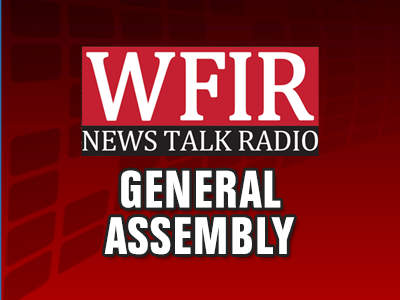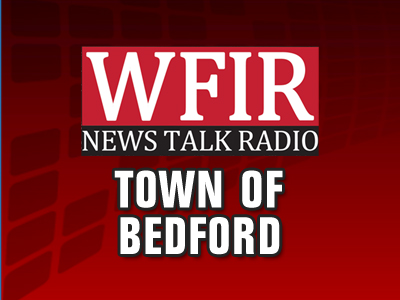 Poll released by Roanoke College: Vice President Kamala Harris holds a 10-point lead over former President Donald Trump (51%-41%) in Virginia, according to the Roanoke College Poll. Independent Cornel West and Libertarian Chase Oliver both poll at 2%, and Jill Stein, the Green Party candidate, takes 1% of the vote. In the U.S. Senate race, Democratic Senator Tim Kaine leads his Republican challenger Hung Cao (51%-40%). The Institute for Policy and Opinion Research (IPOR) at Roanoke College interviewed 851 likely registered voters in Virginia between October 25 and October 29, 2024 – just days before Trump’s scheduled campaign rally in Salem. The survey has a margin of error of 4.6%.
Poll released by Roanoke College: Vice President Kamala Harris holds a 10-point lead over former President Donald Trump (51%-41%) in Virginia, according to the Roanoke College Poll. Independent Cornel West and Libertarian Chase Oliver both poll at 2%, and Jill Stein, the Green Party candidate, takes 1% of the vote. In the U.S. Senate race, Democratic Senator Tim Kaine leads his Republican challenger Hung Cao (51%-40%). The Institute for Policy and Opinion Research (IPOR) at Roanoke College interviewed 851 likely registered voters in Virginia between October 25 and October 29, 2024 – just days before Trump’s scheduled campaign rally in Salem. The survey has a margin of error of 4.6%.
2024 General Election
Only 2% of likely voters say they are undecided, and another 2% say they will vote for someone other than the five candidates on the ballot. Just less than half (47%) say they are almost certain to vote, while 40% report they have already voted. One-fourth (24%) still plan to vote prior to Election Day.
A large majority (85%) of those who have not yet voted are very certain of their vote choice, and another 9% are somewhat certain. Two-thirds (66%) are very enthusiastic about voting, and another 17% are somewhat enthusiastic. The economy was named as the most important issue by 43% of respondents. Abortion (20%) and immigration (12%) were cited as most important more frequently than foreign affairs (8%) and crime (3%).
Likely voters trust Harris to do a better job on abortion (57%, compared to 36% for Trump), but the candidates are viewed about equally on other issues (tied at 48% on immigration; Harris favored 49%-45% on both crime and foreign policy; and Trump seen as doing a better job on the economy 49%-46%).
Asked if the candidate understands and cares about people like them, only 37% think that Trump understands and cares compared to 46% for Harris. Respondents are closely divided regarding the impact of the federal government, with 44% thinking the government makes their life worse and 40% thinking it makes their life better.
Job Approval, Favorable/Unfavorable, and Directions of Virginia and Nation
Evaluations of the direction of the nation and the commonwealth remain mostly stable. Just under half (46%) think that Virginia is headed in the right direction, while 64% think the country is on the wrong track (down from 71% in August). Job approval for President Biden (38%) is up three points from August.
Favorability ratings for federal officials and candidates remain negative, with Trump (38% favorable/54% unfavorable) and Biden (37% favorable/50% unfavorable) still leading in the wrong way. Harris is barely underwater at 45%/46%, which is an improvement for her since the August Roanoke College Poll. U.S. Senator Tim Kaine fares better with 39% favorable and 33% unfavorable. Hung Cao is also in positive territory at 28% favorable/24% unfavorable, but almost half of likely voters are unsure about him or don’t know enough to have an opinion.
Analysis
“Kamala Harris has increased the slim lead she held in the August Roanoke College Poll,” said Dr. Harry Wilson, senior political analyst for IPOR and Professor Emeritus of Political Science at Roanoke College. “She is claiming 95% of Democrats and leads 49%-36% among independents. Trump is supported by 90% of Republicans, but that might not be enough for him to win in Virginia.”
“With so few undecided voters, it’s a tough uphill climb for Trump. Democrats continue to take advantage of early voting. Republicans are catching up, but they need massive turnout on Election Day.”
Methodology
Interviewing for the Roanoke College Poll was conducted by The Institute for Policy and Opinion Research (IPOR) at Roanoke College in Salem, Virginia, between October 25 and October 29, 2024. A total of 851 completed interviews came from telephone calls and texts to registered voters in Virginia.
Interviews were conducted in English.
The sampling frame was created by generating a random subset of Virginia registered voters provided by L2 and augmented by Marketing Systems Group. The sampling frame was randomly split so that half of the potential respondents would receive a text message with an invitation to complete the survey on their own before we would call them, and the other half would be called and interviewed over the phone by a live agent and send a text message afterwards with an invitation if the respondent was not available when we called. In all cases, where the sample had both a cell phone number and landline number, calls were made to a potential respondent’s cell phone number.
Of the 851 responses, 19 (2%) were landline interviews, 450 (53%) were cell phone interviews, and 382 (45%) were completed by text to web. Three attention checks, survey completion time, and a manual review of all data were used to ensure quality control and data integrity for all web completions.
Questions answered by the sample of 851 respondents are subject to an error margin (including design effect) of plus or minus 4.6% at a confidence level of 95%. This means that in 95 out of 100 samples such as the one used here, the results should be at most 4.6 percentage points above or below the figure obtained by interviewing all registered voters in Virginia with a home telephone or a cellphone. Where the results of subgroups are reported, the error margin is higher.



